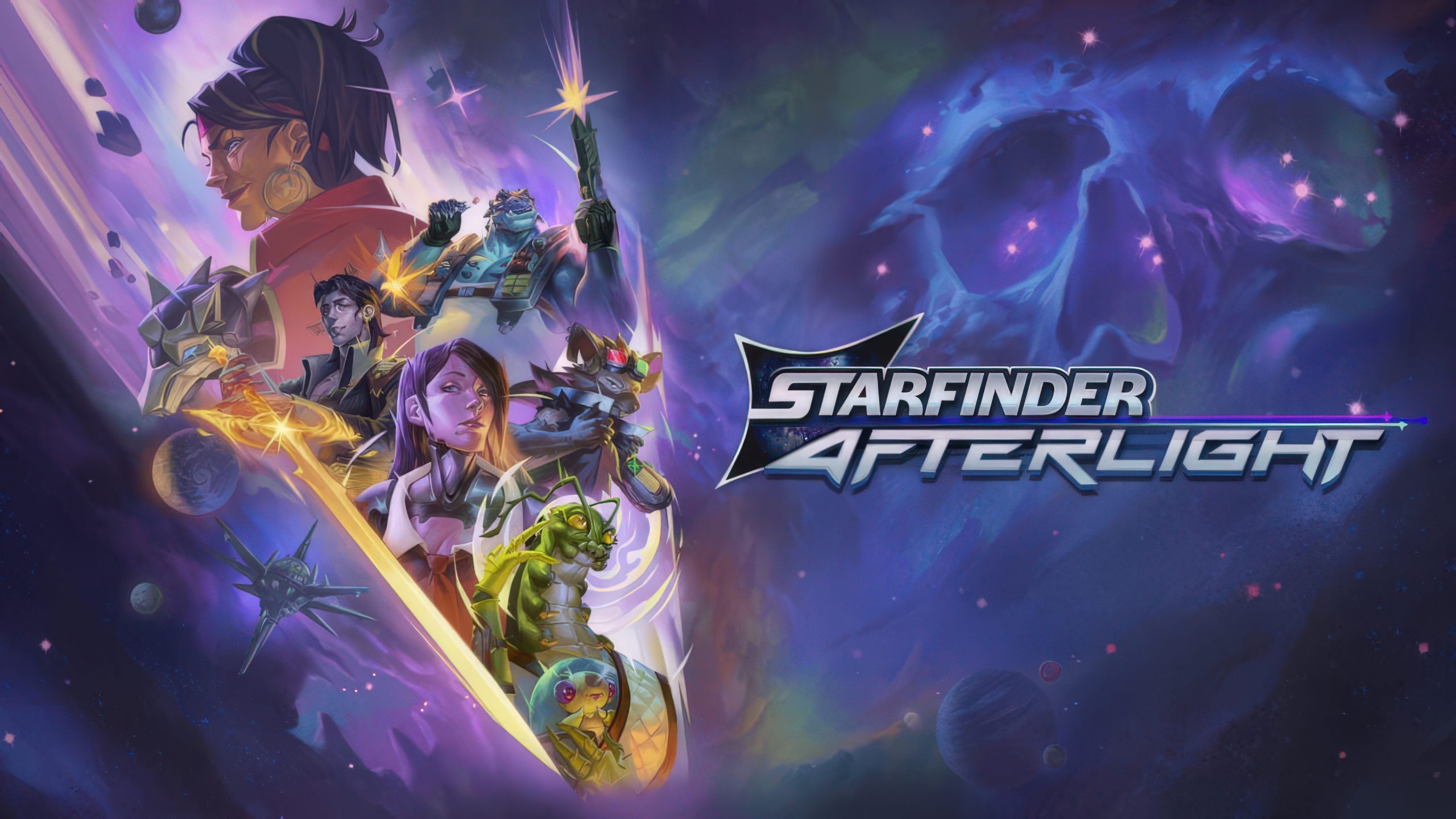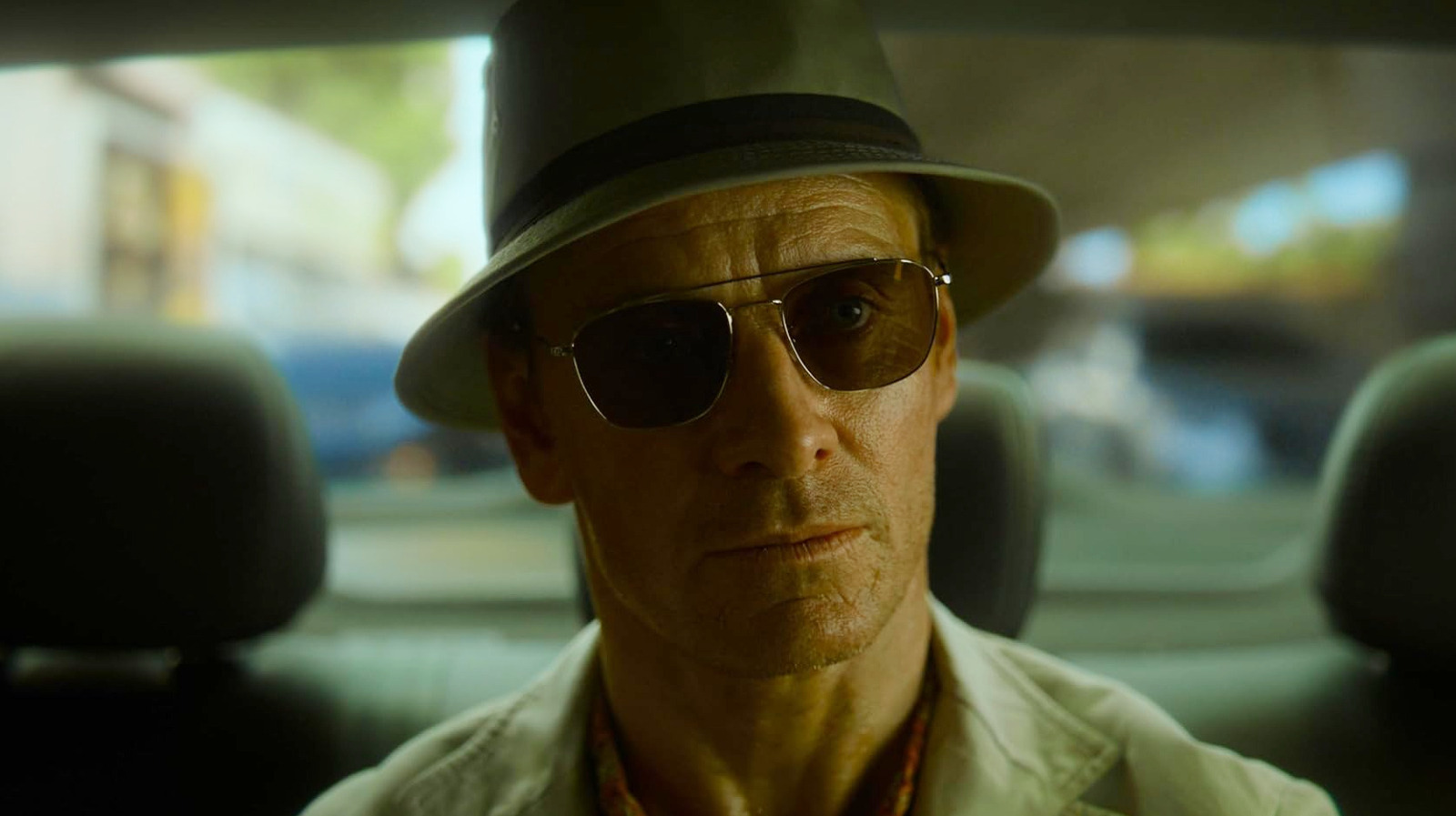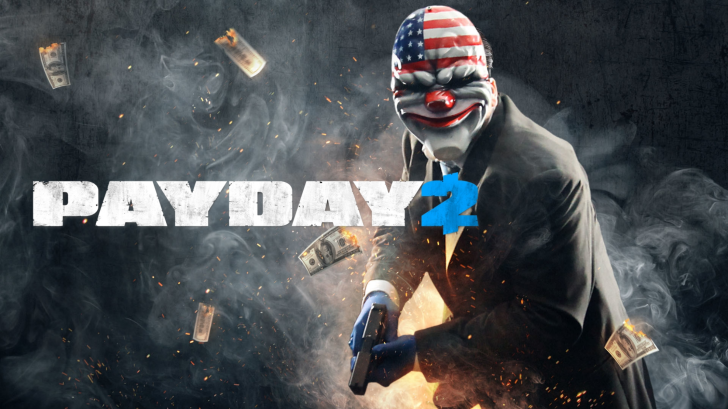Copyright Wccftech

Barcelona-based independent developer Epictellers Entertainment came a bit out of nowhere with Starfinder: Afterlight, an upcoming cRPG adapted from Paizo's science fantasy tabletop franchise. Epictellers has sought funding through Kickstarter and, as reported earlier this month, quickly reached the campaign's minimum goal. With sixteen days left on the campaign, they already gathered over €530K, unlocking multiple stretch goals. Starfinder: Afterlight already caught our attention, which is why I reached out to Epictellers and set up an interview with the two co-founders, Ricard Pillosu and Albert Jane Goset, to discuss this project, the ongoing Kickstarter campaign, and more. Tell me a bit about your studio, Epictellers Entertainment. Ricard Pillosu: Albert and I founded the studio in 2023. We come from AAA companies, and we wanted a bit more of creating our own concept of a studio, smaller, and also doing a genre that is not receiving enough pay attention, which is cRPGs. Even after the enormous success of Baldur's Gate 3, not many studios are jumping into these kind of games, and we wanted to give it a try. We are fully independent, and we don't have a publisher; everything we do is by ourselves, and that was the idea. Do you have prior experience making cRPGs? Or did you use to make other types of games when you worked at triple-A companies? Ricard Pillosu: No, we have never done a cRPG. We come from very big studios with big productions like Crytek and Smilegate, where normally teams are on the hundreds and technology is very complex and so on. One of the main reasons is that we have always wanted to do a game like this. We always ended up doing shooters and things like that, which are cool, but not really close to our heart. Albert and I have known each other since we were teenagers, and we play tabletop RPGs weekly. We have both been Dungeon Masters for tons of different games and we always wanted to do it, even from the very first time that we saw Baldur's Gate 1, which was an enormous influence for us and probably one of the reasons we joined the big game industry, but we never got the chance to do one because there are very few studios that work on this genre. So in the end we said, okay, let's create our own. Like you said, there was kind of a milestone in the genre with the release of Baldur's Gate 3, you could say. After that launch, other cRPG developers said they were worried players would suddenly expect AAA-like values from the genre. What do you think about that? Do you see it as an issue, or are you more focused on the fact that such a big title made more people interested in this type of game? Ricard Pillosu: We were asking ourselves the same question last week. We do not know if people are only now going to pay attention to Baldur's Gate 3 level of quality, which is absolutely unattainable for us. Because we are a very small studio of 30 people, of course. We were very clear about Starfinder: Afterlight. When we announced it in August, we put up the screenshots quickly. We aim for the kind of games Owlcat has been doing with this quality, and we see that Owlcat is performing very well commercially. We talked to them, too. Warhammer 40K: Rogue Trader is a fantastic game, and those are on the AA level. I think that if anything, Baldur's Gate 3's coming has been positive, because there are some things you can translate to AA level. Of course, we are not going to reach that level of audience, that's for sure, but I think there is still a big enough, underserved audience for it, and they are reacting very well, and the Kickstarter is proof of it. Awesome. And did you cultivate a community base through Discord prior to the launch of the Starfinder: Afterlight Kickstarter? Because it seems like a lot of players were immediately eager to help with the funding. Albert Jane Goset: Actually, no, we launched Discord when we started the campaign. No, what we did was announce the game at GenCon, where, actually, Paizo, the IP holders, released the second edition of Starfinder. Pathfinder had already had a second edition a long time ago, and Starfinder's second edition book was released this summer in August, so we announced it together with them. That actually pushed a lot of people already towards the Kickstarter pre-campaign. Then we started showing some bits of information, and with the help of our PR agency, we did some interviews with Polygon and other publications, so that actually helped just carry a little bit the ball forward. We were not expecting that level of contribution. But the idea of the Kickstarter was actually to build a community that can go with us during this journey. Several cRPGs, like Pillars of Eternity, Divinity: Original Sin, Wasteland 3, and many others, were funded through Kickstarter for a while. Lately, it seems like Kickstarter is being used more rarely, I'd say. Were you nervous before going to Kickstarter with Starfinder: Afterlight? Did you evaluate other options? Albert Jane Goset: I mean, I think anyone not nervous about Kickstarter is lying. Kickstarter is a big milestone for us. We are fully funded, so Kickstarter was more about collecting that community and reaching the stuff we couldn't have. For instance, right now, we will add more voice acting because that's one key part of our game. The characters must feel alive, so we need directors to do that. We wanted as much as possible to have voiceover, and Kickstarter is helping. I think that one of the reasons why we did Kickstarter was actually because we knew that a big part of the cRPG community had a Kickstarter account. That helped us decide, okay, let's do that. Let's see how people react. Let's gather this community. That was a big hit. But I think that, being our first Kickstarter and everything, you get nervous because you never know what to expect. Even if you have like 7,000 followers, as we did, you never know what the result will be. So it's always a gamble. But yeah, we are super happy with the community. They reacted super well. We have over 9,650 backers. It's going great. Can you talk a bit about the partnership with Paizo? Did you consider making your own IP? How did you choose the setting, and how did you approach Paizo for getting the license? Ricard Pillosu: Since we decided that we wanted to do cRPGs, we were looking into getting an IP that could resonate and we were looking for something that was different enough, that felt fresh, something that is a bit uncharted territory. We love Paizo products. We didn't know if they were going to want to work with us, so we knocked on the door, but from the very first meeting, they were fantastic people. They helped us look into all their IPs, not just Starfinder. It was tough to choose, but when we asked about Starfinder, they said, yes, why not? Pitch us, what are your ideas about it? So we went into the cave and crafted what we would like to do with this, showed it to them, and they liked it. The rest is history. We have known the IP since the first edition, and we loved it. At that moment, I think everything clicked with everybody on the team. Everybody's like, wow, Starfinder will be awesome. We were also lucky that they were launching the second edition, so it was a bit of a reset of the whole concept. Of course, most cRPGs are, as you know, based on fantasy settings. Do you think this will help you, as it is a bit of an underserved niche in sci-fi or science fantasy? Ricard Pillosu: This was one of the reasons that we wanted to do Starfinder, but we were also scared of sci-fi. It's a niche inside the cRPG, which is already a niche because you normally do fantasy. But this IP is really not hard science fiction. It's more of a fantasy moved into the world of science fiction. It's called science fantasy and allows you to blend magic. In this world, there are gods. There are priests who pray to those gods. But you also have interplanetary travel, spaceship combat, and things like this in the game. So you will have a lot of stuff that Starfinder brings to the table that is fresh, but also resonates with players who are used to fantasy. I guess it is more like Star Wars than Star Trek. Ricard Pillosu: Yes, yes. It's more of an adventure. We really resonate more now with Guardians of the Galaxy, which is, again, craziness in space. Let's just have fun. Get our spaceship around and fight the bad guys. But it could be crazy stuff like big creatures roaming in space and magic and doing crazy stuff. It's this kind of tone. Are you going for a slightly comedic tone with Starfinder: Afterlight? Ricard Pillosu: Yeah, which is quite hard because comedy is complex in video games. But when we play Starfinder ourselves, we have so much fun. It doesn't mean that it's a comedy game. It's the same as in the Guardians of the Galaxy movie. You would not describe it as an actual comedy. It has a comedy element, of course, but it's really an epic adventure in space. But it does not take itself very seriously. And that's what we are aiming for with this game. Can you talk a bit about the story premise for your game? Ricard Pillosu: Well, there are lots of things that are a bit too soon to speak about, but I can say, for example, that the name of the game is Starfinder: Afterlight. And the Afterlight is really a bad thing. It's something that happens that affects the whole galaxy. It's an extinction event you witness, yet somehow, without going into details, you will still have time to prevent. But nobody believes you. So you are there like, this is going to happen. People think you are crazy. So you need to find a new crew and try to see how to ensure it never happens. This involves undead people from a planet called Eox, but that's as much as I can say. At the beginning of the game, you will experience this kind of epiphany and then you get some time to prevent it before it happens. Then you land on a planet called Aquiton, and you need to find a crew there. I see here on the Kickstarter description that you mention branching narrative and choices. How do you approach this common CRPG feature? Ricard Pillosu: Carefully. That's a lot of work. We have invested quite a lot of time in creating a set of tools for the narrative team to iterate very fast. They normally iterate with the game open. They keep writing and rewriting and adding new lines and removing lines until it feels good. We do a lot of playtests internally until everything is understood and clear. And we make sure that we do, besides the main story, then we do runs expecting other kind of characters and other events. Like, I do this quest first and then this dialogue here changes. If I am a Borai, for example, or I am a soldier, then I have this option and then we do a pass on, okay, option for the soldier, option for this new ancestry. Until it has a lot of variety and every time somebody plays, it feels a very personalized experience. So, long story short, it's just a lot of work. It's really like that. Will it be possible to complete quests in multiple ways in Starfinder: Afterlight? For example, sometimes without having to fight, via persuasion and stuff like that? Ricard Pillosu: Yes, we have some internal rules for all the quests. You need to have quite a few spots to enter the quest, not only one, so you could find four or five sources to get the quest, and then the quest normally needs to have at least three ways of being finished. Fighting your way through is one of the obvious ones, but then we always try to have one that is about talking, that it's about maybe buying something, that it's about maybe circumventing the problem, and going and talk to someone, or complete another quest that will help that person align with you. So we want, as I said, people who will speak about their experience in the game with their friends, and they will be like, oh, you did that? Is that possible? Okay, maybe I will try in my next Starfinder: Afterlight run. We are actually creating more content than the players will experience. Hopefully, as much as time allows, and our budget stretches, we'll have so many options that the players will feel that each run is different. You estimate a 40-60-hour campaign. How much of that is the critical path, and how much is side content and stuff like that? Ricard Pillosu: Compared to what we have worked on before, this type of game is very difficult to measure in time because there are so many ways to play it. The critical path can be done in 40 hours if you move forward very quickly, but it's difficult to move forward very quickly because it's a turn-based combat. You have to upgrade your gear. You need to raise your characters to a higher level and make a lot of choices. So it depends on where your interests are. If your interest is in the narrative, or is in combat, or is in optimizing, or you want to try combat a different way, or save and load again, the experience is going to be slower or faster. But we estimate that in around 40 hours, you will be able to finish the game, but we are internally building way more than that. We are building around 80 to 100 hours of content. Maybe you decide not to take any of the companions. Perhaps you choose to fly solo, maybe you decide to get a mercenary and two companions, and that changes the experience. So we are going to build lots of content, and you will experience around 40 to 50 percent of it. You mentioned that Starfinder: Afterlight is kind of like Divinity Original Sin meets Guardians of the Galaxy. So, with regards to the first part, are you perhaps referring to Larian's environmental interaction? Original Sin had a lot of that, where you could interact with surfaces and other objects in combat to make different reactions. Is that something that you have in the game? Ricard Pillosu: I don't think we will reach the enormous amount of variety that Divinity Original Sin 2 has, but we can do a lot, especially since the science fiction environment allows us many approaches to do things. So first, our game has longer ranges. When you are shooting, you have really long ranges, not like bow and arrow. And you have computers, you can sometimes control machines. We have some classes that allow you to handle magic and handle mechanics and hack computers easily. So there are many ways to do things that are normally not that intuitive in a fantasy setting. Our goal is that you will have as many interactions as we can, but it's our first game and we want to be realistic with the scope. Let's see how much we can get. For example, one of the things that we sadly need to cut from the scope is flying. In science fiction, it's common that you go into areas without gravity or you have jetpacks and things like this. But again, we're a small team, humble, doing our first game. We decided to keep it to levitation only. Also, bear in mind that we aim to drop a set of modding tools shortly after launch. So if people can expand that and add more variety, they will be more than welcome. But I think that we will ship with a decent variety for the game. One thing that, after Baldur's Gate 3, will be totally unacceptable to ship without is the ability to push people down. Sometimes it is a shortcut to actually kill someone who is very powerful, but if you manage to push them off the cliff, you actually immediately kill them. This is one of the things that absolutely will be there in the game. But others, we are discussing how much we can get there because those are quite complex. Was it hard to adapt the triple action system from the tabletop to Starfinder: Afterlight? Did you have to make any big changes, or just small tweaks? Ricard Pillosu: Actually, no. One of the things that we loved about Starfinder is that the second edition was going to use Pathfinder second edition rules. When we tried them on tabletop, we always thought those rules are meant to be in a video game because they are well-balanced, they are well-thought, mathematically make a lot of sense, and just moving them into a video game, it's actually not that difficult, especially the three-action system. But there are other things that are complex, especially things that are funny to play around in your imagination when you're in tabletop, but in video games are very difficult to handle. For example, the Ysoki, which are like rat-like folk ancestry, at some point there is one ancestry feat that they can have their tail handle guns. This is actually very simple to just write it, and in tabletop it's very funny to imagine. But the moment we look at it animation-wise and for the rig, that's quite a lot of work. Now we need to have some sort of tail that can handle guns. How do we handle that? Suddenly this could explode into a lot of work. So what we are doing is evaluating what is more feasible, what is less feasible, and then deciding which battles we want to fight. But the core of the system, it actually was fantastic. I prefer to adapt this one than the first edition or, for example, old versions of D&D. Do you have a reaction system similar to D&D or Baldur's Gate, where anyone who faces a foe entering gets a free reaction? Ricard Pillosu: In Starfinder 2nd Edition, not everybody gets an opportunity attack, you actually need to have a feat, or you need to come from a class that can do it, but yes, we do. And in this case, we are going the Baldur's Gate 3 route, which I think is the best one, which is, by default, you can configure which kind of reactions you want to trigger automatically, which ones you want to ignore, and which ones you want the combat system to ask if you want to use them or not. But yes, there is a full reaction system. You mentioned the mod support coming later to Starfinder: Afterlight. Do you think players will eventually be able to create full campaigns with this tool? Is that the goal? Ricard Pillosu: That's what I wish for. I miss the days where with the engine from Neverwinter Nights, you could do amazing things. Again, our scope still needs to be kept realistic, and modding tools are quite a bit of work, but we have been doing all our coding with this mindset. We are using an engine that is not traditional. We are using Godot for this game, and in the spirit of open source, we use Blender for most of our art pipeline. So we are aiming to have those tools that people could use and have some documentation out there so that people may want to add a new animation, a new character, a new thing. Modding goes step-by-step, you need to decide which areas you want to allow modding and then keep growing them. Even Larian added modding later, after shipping its base games, so it's a big, big endeavor, but we have been thinking about it from the start, so I think we will have an easier time. I cannot commit to a date, but our aim is that it will be as moddable as we can. If we can have it our way, people will be able to do a Pathfinder game with it if they want. Do you plan to make Starfinder: Afterlight compatible with Steam Workshop? Ricard Pillosu: That's the idea from scratch, to work with Steam Workshop and have the game basically connect directly with that backend and allow you to add mods into your game directly connected to Steam Workshop. Some other games, even Baldur's Gate 3 itself, have integrated with mod.io to allow cross-platform mods that also support consoles. Is that something that's out of your scope for Starfinder: Afterlight, or do you wish it would happen at some point? Ricard Pillosu: I would say that, I mean, mod.io is fantastic, but it made a lot of sense for Larian because they already were multiplatform when they were targeting that. We are not multiplatform as of right now, we are very PC-oriented. Maybe if the game commercially makes sense, we could make a console version later on, and then we will need to, of course, have those modding tools, if possible, move to those platforms. But for us, it's too soon to look into it. What about controller support? Will it be available on PC? Ricard Pillosu: I was shocked personally that people want to play on PC with controller. It seems that it's more and more common that people use this controller, maybe have a PC next to the big TV and then play games like that. We got asked that several times and we were like, no, we are not going to console. They were like, yeah, we know, but we want controller support on PC. Actually, it's not simple. cRPGs are complex with gamepads and we know how different cRPGs try their best, but still it's a difficult marriage there. One of the things that we have in mind is that Starfinder: Afterlight will be shipping on Windows and Linux. We will be able to do a native build for Steam Deck. I don't know when, probably after launch, we'll look into it, but it will be one of the easiest moves for us to make the game running on a Steam Deck. And if you go to a Steam Deck, then you need to make it compatible with gamepad, and that process probably will allow us to have a gamepad compatible mode into the PC version itself. So I suspect that, not for launch, but pretty soon after it. Can you speak a bit about your approach with romances in Starfinder: Afterlight? There are some developers that are not very fond of romance in cRPGs, for example, Obsidian's Josh Sawyer openly said that, but other games have implemented the romance very successfully for their player bases, so what's your take? Ricard Pillosu: The first take is that they are optional. You could even not take your companions, or you could take your companions and play through the game without romance being a thing in the game. It's very important that it feels optional. Then the second thing is, romance is a way to go deeper into knowing that character, so we try to have it as an amplifier of certain emotional moments when you are completing quests that are about companions. If you have been romancing this companion, then they will talk to you as a romantic partner and ask you what we can do here, what you would be doing, and the emotion in that moment probably could be amplified because of that factor of the previous romance connection. Also, we try to have romance not in a simplistic way. We try to make them complex and each companion will have a way to judge the things you are doing, and they will be driven a bit by your decisions. Romances will be starting in the first act, but you need to be with that companion up until the end when you really get to fully fledge that kind of romance. But we try to make them to take that thing very seriously and make sure that each romance feels different and feels very specific to their personality and even the ancestry of the character, because Starfinder has a big variety. Even yesterday we were still having a discussion on how we deal with a romance, for example, for the Shirren, which is an insect-like ancestry species. That species understands romance and relationship in a totally different way, and how do you interface with that? Actually, you could be also a Shirren, you could be a different kind of character. Some characters are telepathic, so how does this influence romance? It's quite a big endeavor. But since we understand that cRPGs are an emotional thing, even if I am a very hardcore player of optimizing my characters and do very complex combats and I enjoy combat very much, you need to have this kind of connection with the game. And in that connection normally is the emotion that you beat up, how you imagine those characters in that world or how invested you are with them. Romance needs to be taking care of that factor very seriously and optionally. But I really cannot say much more about it because we don't want to spoil any of the romances in Starfinder: Afterlight. But it's not an easy thing. Let's see how we do it. One of the big topics nowadays for everything, but specifically with regards to game development, is the usage of AI. So, what's your take on this? Do you think it can be a valuable tool, and do you plan to use it in some ways? Ricard Pillosu: The problem with AI is that AI should be doing the things that we don't want to do, and it seems that it wants to do the things that we want to do. We want to do games. We want to invent characters. We want to invent worlds. We want to draw them. We want to invent them for that. Why? We don't want AI for that. I mean, this is the fun part of video game development. I would like an AI that does my dishes and cleans my apartment. Then I can stay creative. But we don't have the AI for that. It seems that the AI that we are being pushed into is the AI that removes this kind of creativity. So, no, no. We could be doing other stuff, but we jumped into making games because we truly love inventing those things and seeing how we connect those things. There is no point in using AI for any creative endeavor. So, no, we don't like it. Just another thing about the Starfinder: Afterlight Kickstarter campaign. Is there a limit to how many stretch goals you've planned? Albert Jane Goset: We have a finite number of stretch goals, and yeah, we are not that far off. So I think we still have some of them. We might reach them before the end of the campaign. And that will be like, okay, that's everything we wanted to have for this game, at least for now. So yeah, there is a limit to it. We don't want to keep adding things. But we wanted to have at least full voiceover, you know, all these kind of things that we are adding as a stretch goal. It's stuff that we feel like it's going to make Starfinder: Afterlight a better game and a full experience for the players. Indeed, one of the issues with some Kickstarter campaigns for games was that they kept adding a lot of stretch goals and then the project became bloated and everything. Albert Jane Goset: Exactly. It's a great thing to just keep pushing things and to get the people engaged, but I think we have a very clear idea of what we want to do with Starfinder: Afterlight, and keeping our scope and our milestones and roadmap in check, it's something that we don't want to change. That's why a lot of stuff will come after, actually, the game is released, and we already said, this is what we're going to ship with, everything else will come later on, but for now, that's what the game will have. Thank you for your time.



